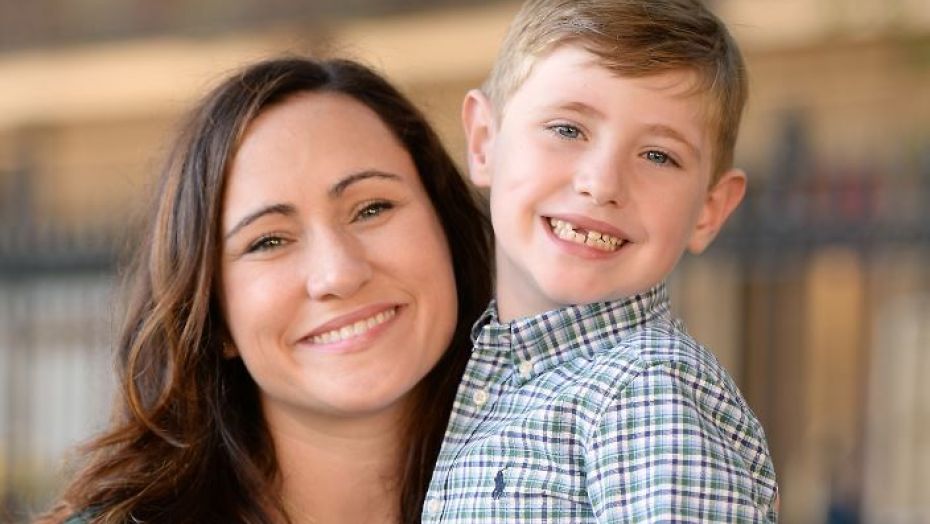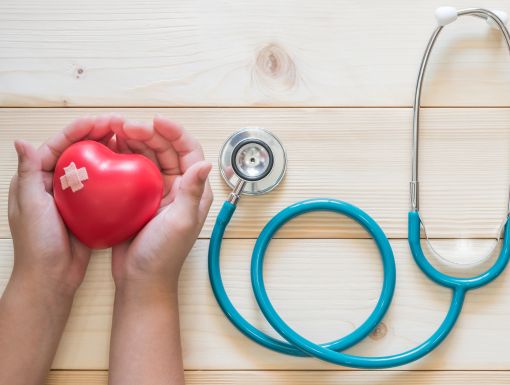
6 Things to Know About Congenital Heart Disease
There were so many overwhelming unknowns the day my son Dylan was diagnosed with Congenital Heart Disease (CHD).
It was a mouthful to say – Hypoplastic Left Heart Syndrome (HLHS) – and I’d never heard of it before.
Families like mine soon find themselves immersed in a new world, learning all they can about the disease, muddying through the lingo and taking the next steps towards finding the absolute best care possible for their child.
Some, diagnosed prenatally like us, have more time to prepare. Others, diagnosed after birth, have less. I used the time I had to learn all I could about everything I could. I was determined to have all the knowledge necessary to give my son the best chance to not only survive but thrive.
To learn more about Ochsner’s Care for Congenital Heart Disease, click here.
Fast forward to the day he had his first open heart surgery at just 4 days old. I felt confident I had achieved my goal and I was as prepared as I could be. But I was wrong. In the process, I had completely overlooked a critical component: my own survival.
Looking back, I wish I had known certain things that I would like to share with parents of newly diagnosed CHD babies.
I am not alone. There is a lot of empowerment and support that comes from connecting with other families. In fact, you come to realize there is an amazing and supportive community that will help lift you up when you are down and give you hope when you need it most.
Many parents will tell you that connecting to peer support was crucial in getting through the toughest of times. Social media, non-profit support groups related to CHDs and resources provided by my hospital continue to make a huge difference today.
There is so much hope. The future is bright for children like my son. Continuing research and education, improvement of surgical techniques and pre- and post-operative management have left us with a land of promise. I connected to local and national groups that support and inform parents about Congenital Heart Disease and found an even brighter outlook there.
It’s okay to grieve. I never realized the importance of acknowledging, accepting and letting go of the grief of the loss of the healthy child I expected to have and the loss of the future I had envisioned before diagnosis. I wasn’t sure if I would even be able to hold my son in my arms. CHD was stealing things from my son and our family before he was even born, and coping with those losses is just as important as dealing with any other loss.
I know my child best. It’s difficult when you are in a hospital, hearing words you don’t understand and seeing things you can’t comprehend. It’s easy to feel sidelined and relatively unimportant.
As the parent, never forget you are the expert on your child, even if you don’t feel like you are. You are enough and you are a vital part of the team caring for them. Never stop advocating for them. Keep listening to that voice inside you and let it roar.
Taking time for myself is important. It’s easy to let your needs take a backseat to the needs of your child or your family. But taking time to do something you enjoy, even if it’s a small thing, can make a huge difference. Let someone else help you carry the weight from time to time. To provide the best care for your child, you need to be strong and healthy, too, both physically and mentally.
This journey is day to day. Just like with any adventure, sometimes you detour and sometimes you make unexpected turns. There will be ups and downs. Changes. Progress. And setbacks. This journey is not a race to the finish line and rarely is it smooth and straight. But you’ll get there. Always celebrate even the smallest steps in the right direction. It all counts.
The day my son was diagnosed, everything changed. I am a very Type A personality and I wanted to know everything. I wanted to have all the answers and guarantees. But there weren’t many.
And in that empty space, there came room for anything. Room for good things, and bad. Room for hopefulness. Room for miracles.
There is an overwhelming sense of emptiness, but you find ways to fill that space. You will fill it with promise, hope and opportunity. You will fill it with belief. And all of those things you find from within, and from the help from others, too. And it will drive you. It will keep you going. People will ask you how you do it. And you will respond, “Because there is no other way.”
To learn more about Ochsner’s Care for Congenital Heart Disease, click here.

